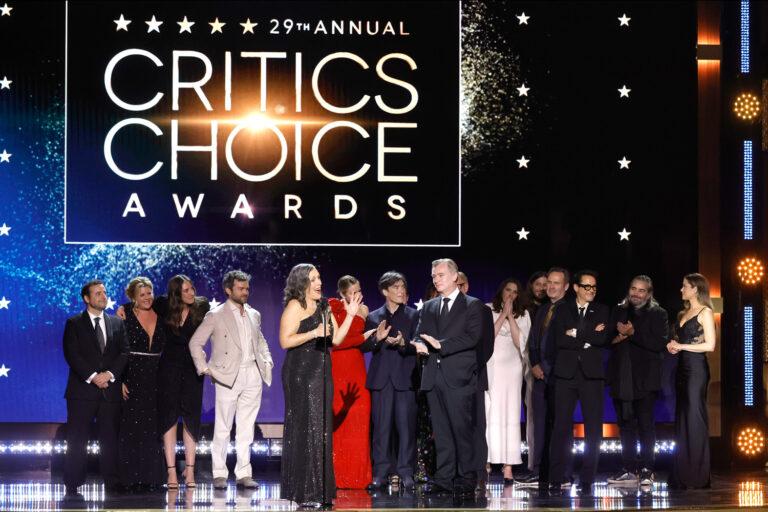Every awards season, film enthusiasts and industry insiders alike turn their attention to the Critics’ Choice Awards as a potential bellwether for the Oscars. With its reputation for honoring both critical darlings and crowd-pleasers, the Critics’ Choice Awards often offer a unique glimpse into the evolving landscape of cinematic excellence. However, the question remains: can these awards reliably predict the winners of the coveted Academy Awards? In this article, we delve into historical data, examine trends, and consider the influence of industry dynamics to assess whether the Critics’ Choice Awards hold any predictive power for the Oscars this year. Through a careful analysis of past outcomes and current nominees, we aim to unravel the complexities of this annual prognostication game and explore what it might reveal about the future of film accolades.
Historical Correlation Between Critics Choice Awards and the Oscars
Over the years, the Critics Choice Awards have often been seen as a bellwether for the Oscars, offering insights into potential Academy Award outcomes. Historically, there is a notable overlap in the winners, particularly in major categories like Best Picture, Best Director, and the acting categories. This correlation can be attributed to the timing of the Critics Choice Awards, which usually occurs during the awards season, and their reputation for having a diverse voting body that mirrors the preferences of the Academy.
However, while the Critics Choice Awards can sometimes foreshadow Oscar results, they are not without exceptions. There have been instances where films and performances celebrated by critics failed to resonate with the Academy. Factors contributing to these discrepancies might include differing voting demographics, campaign strategies, and the evolving tastes of the industry. It’s important to consider these nuances when assessing the predictive power of the Critics Choice Awards:
- Timing and Influence: Held early in the awards season, potentially shaping narratives.
- Voting Body: A diverse group that may align with the Academy’s preferences.
- Historical Exceptions: Instances where critics’ favorites diverged from Oscar winners.

Factors Influencing Divergence in Award Outcomes
The divergence in award outcomes between the Critics’ Choice Awards and the Oscars can be attributed to several key factors. Firstly, the composition of the voting bodies plays a crucial role. While the Critics’ Choice Awards are determined by the Broadcast Film Critics Association, which comprises film critics and journalists, the Oscars are voted on by members of the Academy of Motion Picture Arts and Sciences, a diverse group of industry professionals. This difference in voting demographics often leads to varying preferences and priorities.
- Timing of the Awards: The Critics’ Choice Awards typically occur earlier in the awards season, influencing the momentum and visibility of certain films and performances.
- Cultural and Industry Trends: Shifts in societal values or industry dynamics can sway voters differently in each body.
- Marketing and Campaign Strategies: The intensity and effectiveness of promotional campaigns can impact voter perceptions and decisions.
Additionally, the criteria for evaluation might differ subtly between the two. Critics may prioritize artistic merit and innovation, whereas Academy members might lean towards traditional storytelling or technical excellence. These distinctions, coupled with the subjective nature of art, contribute to the unpredictability and excitement surrounding award season.

Analyzing Trends in Recent Awards Seasons
In recent years, the Critics’ Choice Awards have increasingly become a bellwether for the Oscars, sparking discussions among industry insiders and fans alike. A closer look at the last decade reveals a pattern where the Critics’ Choice Awards often align with the Academy Awards in major categories like Best Picture and Best Director. However, the predictability is not absolute, as there are instances where the Critics’ Choice Award winners diverge from the Oscar winners, particularly in the acting categories.
- Best Picture: Historically, there’s a notable overlap, yet films like “La La Land” and “The Irishman” showcase the unpredictability when they lost the Oscar despite Critics’ Choice victories.
- Best Actor/Actress: While often aligned, variations occur, exemplified by performances that resonate differently with the Academy, such as Taron Egerton in “Rocketman.”
- Technical Categories: These awards tend to reflect broader industry trends and innovations, making them less reliable as predictors but still influential.
Given these nuances, while the Critics’ Choice Awards can offer insights, they remain just one piece of the puzzle in forecasting Oscar outcomes. As the awards season progresses, keeping an eye on other factors such as guild awards and industry buzz will be crucial for a more comprehensive analysis.
Strategic Recommendations for Oscar Predictions Based on Critics Choice Results
Analyzing the patterns from the Critics’ Choice Awards can provide valuable insights for predicting Oscar winners. Historically, there is a notable correlation between the two events, particularly in major categories like Best Picture and Best Director. Critics’ Choice often sets the stage by highlighting emerging trends and frontrunners that could sway Academy voters. However, it’s crucial to consider that while Critics’ Choice results can be indicative, they are not definitive. The Oscars have a different voting body, which can lead to surprising deviations.
- Observe Key Categories: Pay close attention to Best Picture, Director, and Acting categories, as they often align with Oscar results.
- Identify Consistent Nominees: Look for films and individuals who consistently receive nominations across multiple awards platforms.
- Consider Industry Buzz: Take note of films generating significant discussion and praise, even if they don’t win at Critics’ Choice.
while Critics’ Choice Awards can offer strategic guidance for Oscar predictions, they should be used as one of several tools in a comprehensive forecasting approach. Balancing data from multiple award shows can increase the accuracy of your predictions, recognizing that each event has its unique influence on the awards season narrative.
Final Thoughts
while the Critics’ Choice Awards have historically shown a moderate degree of correlation with the Oscars, they remain just one of many indicators in the complex landscape of awards season. The Critics’ Choice Awards often reflect the tastes and preferences of film critics, which can sometimes align with the Academy’s decisions, but not always. Various factors, including industry trends, public sentiment, and strategic campaigning, play pivotal roles in shaping the Oscars’ outcomes. As such, while the Critics’ Choice Awards can provide valuable insights and early indicators of potential Oscar contenders, they should be viewed as part of a broader constellation of predictors. Ultimately, the unpredictability of the Oscars is part of what makes the awards season so engaging, reminding us that film, as an art form, is subject to diverse interpretations and appreciations. As we move closer to the Oscars, it will be interesting to observe how these dynamics unfold and which films and performances ultimately resonate with the Academy.
